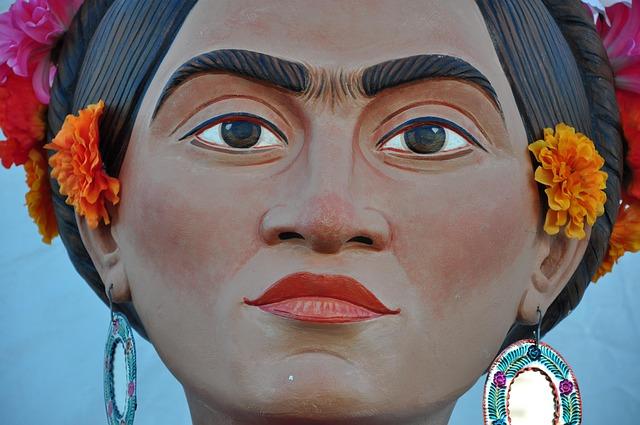Immigration Enforcement Challenges Cast a Shadow Over DĂa de los Muertos Festivities Across the U.S.
Heightened ICE Activity Fuels Anxiety Around DĂa de los Muertos Observances
Across the United States, communities that traditionally celebrate DĂa de los Muertos are confronting unprecedented concerns as intensified Immigration and Customs Enforcement (ICE) operations threaten to disrupt these culturally rich events. Organizers and families alike express growing apprehension that public commemorations could inadvertently expose undocumented individuals to immigration enforcement actions. In regions with significant Latino populations, the atmosphere is increasingly fraught, with many debating whether to downscale or altogether forgo these important cultural gatherings.
This climate of uncertainty has led to a reevaluation of how DĂa de los Muertos is observed, with primary considerations including:
- Ensuring Safety: Protecting undocumented participants from potential ICE encounters.
- Maintaining Privacy: Reducing public visibility to prevent identification and targeting.
- Strengthening Community Support: Mobilizing legal aid and advocacy networks to assist vulnerable individuals.
Some groups are pivoting toward virtual ceremonies or intimate, invitation-only gatherings to uphold the holiday’s significance while minimizing risks. However, these adaptations often come at the expense of the collective spirit and resilience that characterize traditional DĂa de los Muertos celebrations. This tension highlights the broader struggle between preserving cultural identity and navigating an increasingly hostile enforcement environment.
Voices from the Community: Cultural and Emotional Ramifications of Event Curtailments
Community advocates nationwide are raising alarms about the potential cancellation of DĂa de los Muertos festivities amid escalating ICE threats. For many, these events transcend mere celebration—they serve as vital acts of cultural preservation and emotional healing. Leaders stress that halting these gatherings risks deepening feelings of alienation among immigrant families who depend on these rituals to honor their ancestors and maintain cultural continuity.
Grassroots organizers emphasize that DĂa de los Muertos functions as a crucial communal space for storytelling, mourning, and solidarity. In response, many have called for urgent protective measures and unified community action to safeguard the tradition against political intimidation. Key concerns voiced in recent forums include:
| Primary Concern | Impact Description |
|---|---|
| Threat to Cultural Heritage | Event cancellations risk eroding essential cultural expressions and intergenerational memory. |
| Increased Emotional Isolation | Loss of communal mourning spaces exacerbates trauma within families. |
| Political Intimidation Effects | Fear of enforcement deters participation, weakening community bonds. |
| Calls for Protective Advocacy | Leaders urge implementation of safety protocols and community-led defense strategies. |
Legal Guidance: Understanding Rights and Safety Measures Amid Rising ICE Enforcement
With the escalation of ICE activities, legal experts advise immigrant communities and event organizers to stay informed and prepared. Knowing one’s rights during interactions with immigration authorities is critical to minimizing risks. Attorneys recommend carrying valid identification and contact details for trusted immigration lawyers at all times. Key rights include the ability to remain silent and the refusal to consent to searches without a judicial warrant.
Essential precautions recommended by legal professionals include:
- Do not permit entry without a warrant signed by a judge.
- When safe, document any ICE encounters through notes or recordings.
- Designate a reliable contact to be notified immediately if detention occurs.
- Stay updated on local legal aid organizations that provide emergency support.
| Situation | Recommended Action |
|---|---|
| Interactions with ICE | Exercise the right to remain silent and request legal counsel. |
| Home Visits | Request to see a valid warrant before allowing entry. |
| Document Management | Keep immigration papers and lawyer contacts accessible. |
| Community Coordination | Collaborate with local aid groups for rapid response during incidents. |
Strategies for Advocates: Supporting Immigrant Communities During Cultural Events
Advocates working alongside immigrant populations during cultural observances must prioritize creating secure environments and fostering trust to alleviate fears related to immigration enforcement. Establishing safe venues—such as private locations or coordinating with local law enforcement for protection—can help ensure participant safety. Additionally, distributing multilingual educational materials about legal rights and available resources empowers community members to navigate potential encounters with ICE confidently.
Proactive outreach well before the festivities is crucial to building networks capable of swift action in response to enforcement threats. Recommended initiatives include:
- Forming rapid response teams to provide immediate legal and emergency assistance during events.
- Partnering with immigrant rights organizations to enhance advocacy efforts and share timely updates.
- Leveraging social media platforms to circulate safety guidelines and real-time alerts.
- Conducting digital security workshops to safeguard personal information amid heightened enforcement.
| Initiative | Objective |
|---|---|
| Know Your Rights Workshops | Inform community members about legal protections |
| Safe Event Planning | Minimize risk of enforcement presence |
| Rapid Response Networks | Deliver immediate support during raids |
| Digital Privacy Education | Protect sensitive personal data |
Final Thoughts: Navigating Cultural Preservation Amid Enforcement Pressures
As ICE enforcement intensifies, the decision by some communities to cancel or modify DĂa de los Muertos celebrations reflects the profound anxieties experienced by immigrant populations. What has long been a vibrant expression of cultural identity and remembrance now also serves as a stark reminder of the precariousness many face in the United States. This evolving situation sheds light on the broader challenges immigration policies pose to community solidarity and cultural continuity. Moving forward, advocates and stakeholders continue to call for policy reforms that balance enforcement with respect for cultural expression and human dignity.




